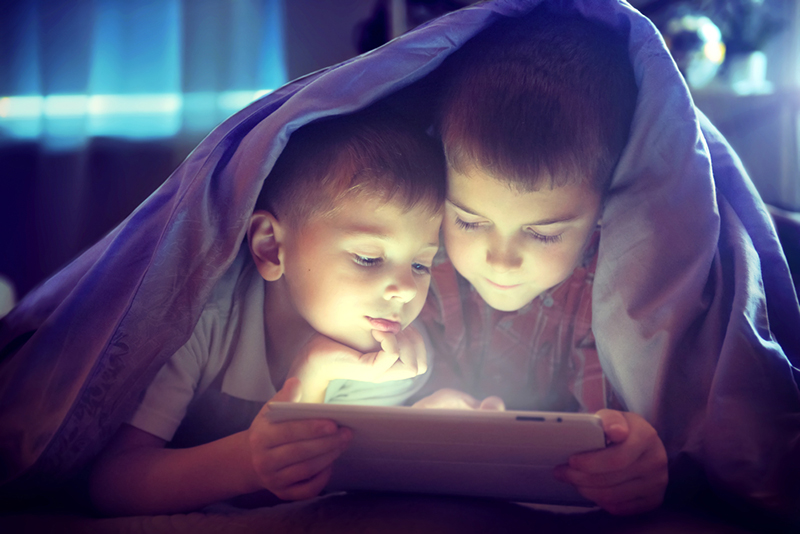We’ve been told time and time again that looking at devices before bed is bad. Why? It can negatively impact on sleep.
According to a piece published in The Conversation by Sarah Loughran, a research fellow at the University of Wollongong, there’s many ways sleep can be affected by screen time including:
- Delaying the time we fall asleep
- Decreasing our amount of sleep
- Reducing the quality of sleep
- Increasing alertness at bedtime.
Researchers have found it’s particularly becoming a problem for children and adolescents. One recent study revealed one in five young people are losing sleep because they’re looking at screens too much and checking social media accounts with many even waking up during the night to send and look at messages.
“This night-time activity is making teenagers three times more likely to feel constantly tired at school than their peers who do not log on at night, and could be affecting their happiness and wellbeing,” a statement released in Science Daily said.
Author, Professor Sally Power, believes the use of social media is invading the “sanctuary’” of the bedroom.
“The research shows that a small but significant number of children and young people say that they often go to school feeling tired and these are the same young people who also have the lowest levels of wellbeing,” Professor Power said.
Sleep deprivation affects brain development
The theories suggested in this research are supported by Ms Loughran who studies effects on sleep and human brain function, and runs a sleep research facility in Australia.
“Sleep is an essential part of our development and wellbeing. It is important for learning and memory, emotions and behaviours, and our health more generally. Yet the total amount of sleep that children and adolescents are getting is continuing to decrease,” she said.
“We can combat this growing problem in a number of ways”.
“It is becoming increasingly clear that limiting screen time in the period leading up to bedtime is beneficial for sleep. In relation to this, removing electronic devices from the bedroom provides a good sleep environment and promotes good sleep practices.”
How to limit screen time before bed
OK it sounds all well and good in theory but getting your kids to agree to give up their computers and phones? Not so simple.
The Huffington Post published some tips to help separate children from their devices including:
- Taking their phone of them two hours before bed time
- Using an a clock as an alarm instead of a mobile phone
- Stocking up on books to encourage reading at night.
- Charging devices outside of bedrooms so they’re not within reach when notifications come through.
“A 2014 study found that those who read on screens before bed released less melatonin, the hormone that helps us sleep, compared to those who read from a printed book,” the article said.
“These people weren’t able to reach rapid-eye movement (REM) sleep for as long throughout the night and took longer to fall asleep.
“Kindles, eReaders, iPads and smartphone reading apps may be a convenient way to get kids reading. However, they can come at a cost.”





